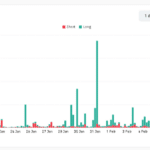(Figures that David Rosenberg would be the first mainstream voice to stick his neck out and speak truth to power. Hopefully this is a 21st century Great Depression and not my grandfather's ... - AM)
By Tracy Alloway
Jan 27 15:39.
FT Alphaville
Well, it’s finally happened - a mainstream investment bank calling not just a recession, but a depression. How depressing.
In a note entitled “Some inconvenient truths”, Merrill Lynch’s North American economist David Rosenberg elucidates:
It shouldn’t come as any big surprise that with such a provocative title, we would be saddled with questions as to how an economic depression is even defined. Of course, most portfolio managers still don’t know that a recession is not defined as back-to-back quarters of negative real GDP prints (which we had neither in 2002 nor 2008) but instead the timing of the peaks in real sales activity, employment, industrial production and organic personal income growth.
As for depressions, there is no official definition, except to say that they have existed in the past. There were no fewer than four in the nineteenth century, one in the twentieth century, and we are very likely enduring another one today. Though this current one is muted by the fact that most countries have an elaborate social safety net (deposit insurance, unemployment benefits, welfare, and socialized health care).
Depressions are basically long recessions - they can last anywhere from three to seven years, while historically cyclical recessions last 18 months - and tend to follow years of leveraged prosperity of Gatsby-like proportions. Considering that in this most recent leveraged cycle from 2002-07, we reached a point where a record 40% of corporate profits were derived from financial activities, where household debt relative to income and assets surged to unprecedented levels and the personal savings rate briefly went negative at the height of the housing bubble, it is safe to say the down-cycle we are currently experiencing did indeed follow a classic elongated period of leveraged prosperity. It is now reverting to the mean.
And with regards to reverting to the mean, Rosenberg provides some rather scary numbers:
* $6 trillion - The amount of private sector debt that needs to be eliminated (Based on ML data that total private sector credit market debt relative to national income is still near a record-high of 140 per cent vs a long-run norm of 80 per cent).
* $1 trillion - The amount of excess capacity in the US economy.
* $13 trillion - the cumulative loss of household net worth at the end of 2008.
* 70% - The US’s share of global consumer spending/GDP, which Rosenberg predicts will now revert to its long-run average of 64 per cent.
And the scariest bit of all:As Morgan Freeman (Red) put it so eloquently in The Shawshank Redemption, “that’s all it takes, really, pressure, and time.” Time is certainly going to be a big part of the solution, and history tells us that deleveraging cycles last years. While the pendulum is obviously on the downswing, the forecasting community is obsessed with locating the bottom. In our view the appropriate focus is to assess just how far the pendulum will swing in the opposite direction, because a mean-reversion process actually breaks through the mean.
Tuesday, January 27, 2009
Subscribe to:
Post Comments (Atom)



No comments:
Post a Comment